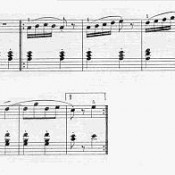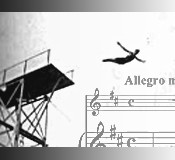Feb 282012
People consider sports and music at opposite ends of the spectrum but they aren’t. The verb itself is the same. One plays football and plays basketball and plays piano and plays violin. In music, only singing and drumming have their own verbs and they are the oldest of all musical activities.
Both sports and music involve endless amounts of practice. read the rest


